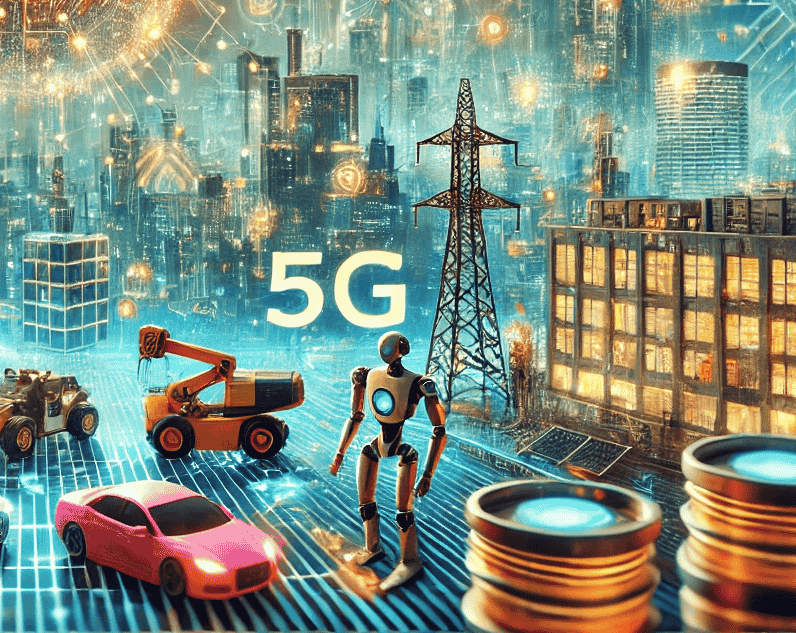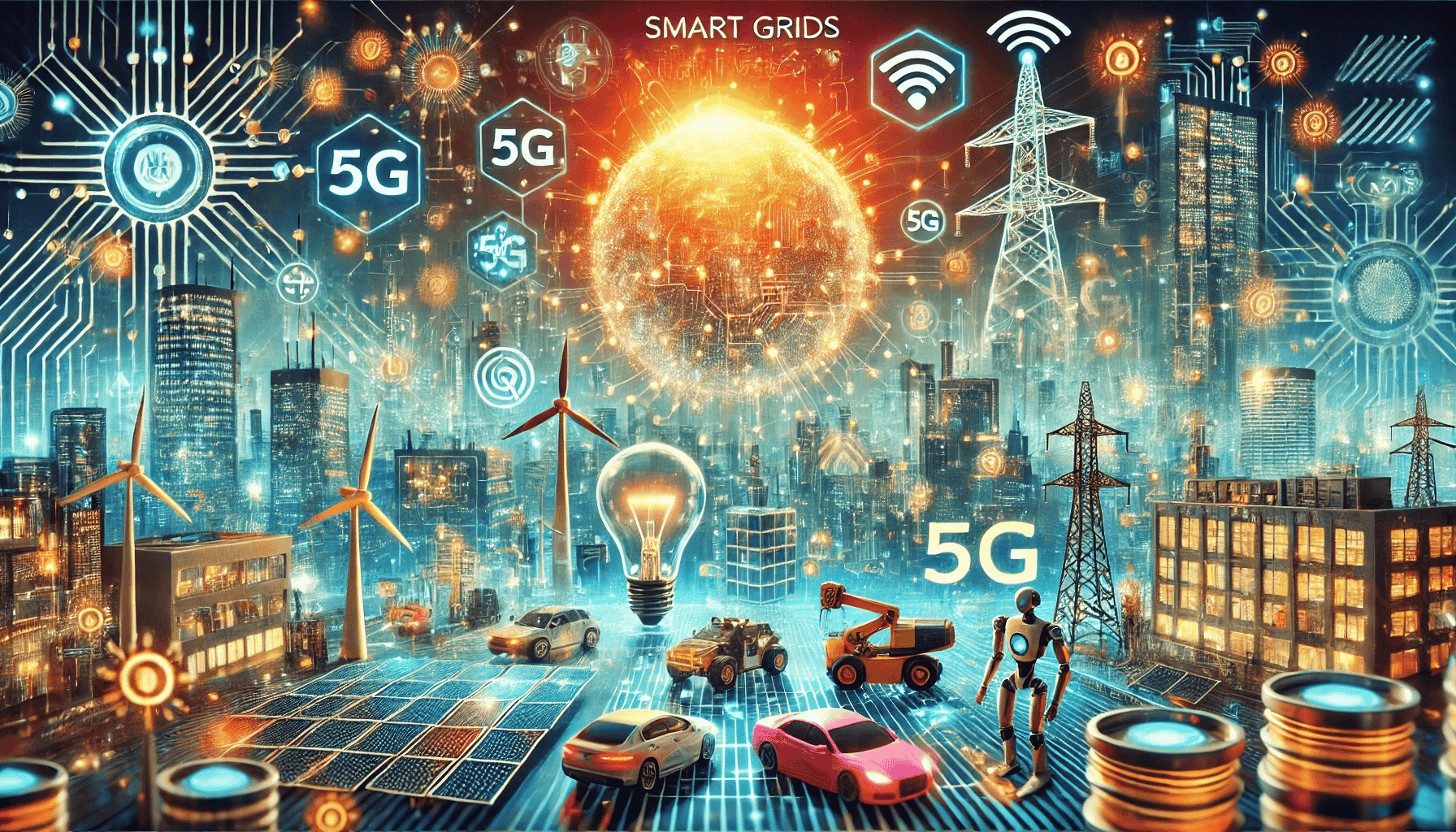
Electrical engineering is a dynamic field that has been at the heart of many technological advancements for decades. From powering our homes to enabling the digital revolution, electrical engineers have played a pivotal role in shaping the modern world. As we step into an era dominated by innovation, the future of electrical engineering is brimming with exciting possibilities. In this blog post, I will try to explain the emerging technologies and trends that are set to revolutionize the electrical engineering landscape in the coming years.
1. The Rise of Renewable Energy Solutions
As the world faces the challenges of climate change and resource depletion, renewable energy has become a major focus of innovation in electrical engineering. Solar, wind, and hydropower are among the most promising sources of clean energy, and electrical engineers are working tirelessly to improve the efficiency and integration of these systems. Advancements in energy storage technologies, like lithium-ion and solid-state batteries, are also transforming how we store and distribute renewable energy. Engineers are exploring new ways to make power grids smarter, enabling them to accommodate intermittent renewable sources more effectively and ensuring a reliable and sustainable energy future.
2. Smart Grids and IoT Integration
One of the most exciting developments in electrical engineering is the advent of smart grids. These are electrical grids that leverage advanced sensors, automation, and real-time data to monitor and manage energy distribution. The integration of the Internet of Things (IoT) with smart grids allows for better demand-response systems, predictive maintenance, and energy optimization. Engineers are increasingly focused on creating more resilient and flexible electrical systems that can adapt to changing demands, integrate renewable energy, and respond to outages faster. This will result in more reliable power delivery, improved energy efficiency, and cost savings for consumers.
3. Electric Vehicles (EVs) and Charging System
The transportation sector is undergoing a monumental shift with the rise of electric vehicles (EVs). As EV adoption grows, there is a pressing need for improved charging infrastructure and more efficient power distribution systems. Electrical engineers are tasked with designing fast-charging stations, grid integration solutions, and energy management systems to support the widespread use of EVs. Moreover, advancements in power electronics are enabling more efficient energy conversion in electric drivetrains, making EVs more affordable and practical for everyday use. The future of transportation relies heavily on electrical engineering to ensure that the transition to EVs is smooth, sustainable, and scalable.
4. 5G Networks and Role of Electrical Engineers
The rollout of 5G networks promises to revolutionize communication, enabling faster data transfer, lower latency, and a more connected world. Electrical engineers are integral to the development and implementation of 5G infrastructure, from the design of new antennas and transmitters to ensuring the stability and efficiency of power systems supporting these networks. As 5G becomes more prevalent, the demand for low-power, high-efficiency components will skyrocket. Electrical engineers will play a key role in minimizing power consumption while maintaining high-performance standards, ensuring that the future of communication is both sustainable and cutting-edge.
5. Artificial Intelligence (AI) and Automation in Electrical Engineering
Artificial Intelligence (AI) is transforming industries across the globe, and electrical engineering is no exception. AI-powered systems are being used to optimize energy systems, improve predictive maintenance, and enhance the design process. In the realm of automation, electrical engineers are developing more sophisticated robots and machines that can perform complex tasks with greater precision and efficiency. The use of AI in electrical engineering also extends to the development of self-learning algorithms for energy management, where systems can autonomously adjust to changing conditions to improve performance and reduce costs.

6. Wearable Technology and Healthcare Innovations
Electrical engineers are at the forefront of innovations in wearable technology and medical devices. Advances in bioelectronics and smart sensors are enabling the development of more sophisticated health-monitoring systems, from fitness trackers to wearable ECG monitors. These technologies rely on electrical engineers to design low-power circuits, enhance data transmission, and ensure the devices' overall performance and reliability. As wearable tech becomes an integral part of healthcare, electrical engineers will continue to develop more advanced, efficient, and seamless solutions for tracking and managing health data.
7. Advancements in Power Electronics
Power electronics is a cornerstone of modern electrical engineering, responsible for the conversion and control of electrical energy. The ongoing trend toward miniaturization and higher efficiency has led to significant advancements in the field. Electrical engineers are designing power electronic devices that can operate at higher frequencies, handle larger loads, and reduce energy losses.One of the major breakthroughs in power electronics is the development of wide-bandgap semiconductors, such as silicon carbide (SiC) and gallium nitride (GaN). These materials offer greater efficiency and higher power density compared to traditional silicon-based components, enabling more compact and efficient devices for everything from electric vehicles to renewable energy systems.
8. Cybersecurity in Electrical Engineering Systems
With the increasing reliance on digital systems for power distribution, automation, and IoT integration, cybersecurity has become a critical concern in electrical engineering. Electrical engineers are tasked with safeguarding electrical systems against cyber threats and ensuring the integrity of data transmission across the grid. Developing secure communication protocols, encryption methods, and real-time monitoring systems are just some of the ways engineers are addressing cybersecurity challenges. Protecting critical infrastructure from cyberattacks will be an essential focus for the industry moving forward.
Conclusion
The future of electrical engineering is more exciting than ever, with numerous emerging technologies poised to reshape industries and everyday life. From renewable energy solutions to advancements in AI and cybersecurity, electrical engineers will continue to be the driving force behind innovation. As the world becomes more interconnected, sustainable, and technologically advanced, electrical engineers will remain at the heart of it all, creating the systems and solutions that power our future.